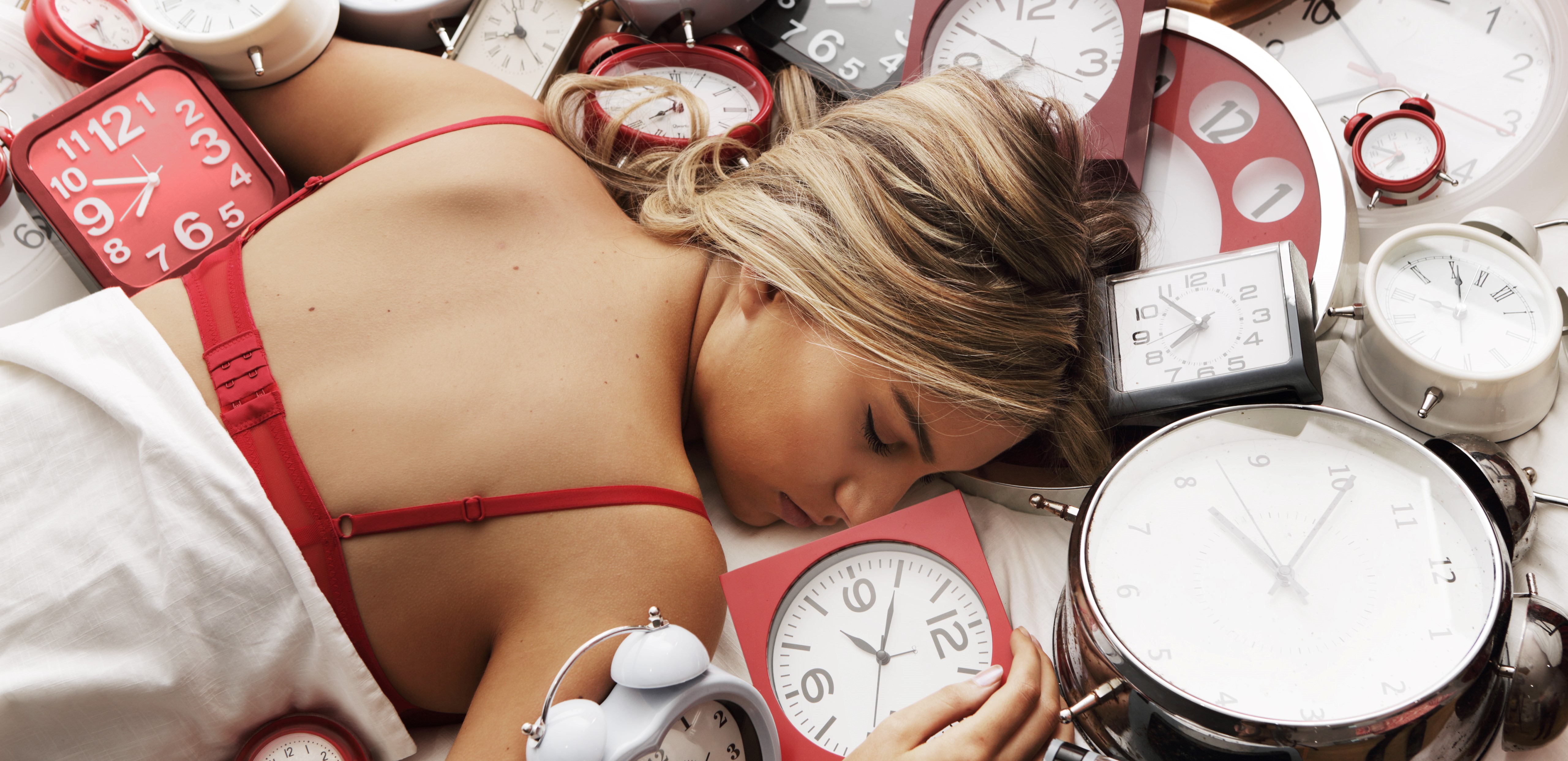Why REM sleep is important: the benefits of deep snoozing
From memory to stress relief, there are many reasons why REM sleep is important for your overall health

The quantity of sleep obviously matters, but so does the quality—that's why REM sleep is important. (The best sleep aid products should help, but more on that later.)
If you're wondering 'how many hours of sleep do I need?' according to research published in the Nature and Science of Sleep journal, the average person should get seven to nine hours of zzz's a night.
But it's not enough to just get the right amount of sleep (the National Health Service warns that one in three adults doesn't get enough sleep), you need to get the right kind of sleep, too.
The amount of rapid eye movement sleep (REM sleep) and deep sleep that you get is one of the best measurements of your sleep quality. If you want more energy, stronger health, and clearer thinking, it's time to learn about the different stages of sleep, why REM sleep is important, and strategies to get a better night's rest.
The five stages of sleep: What is REM sleep?
Throughout the night, your body goes through five distinct stages of sleep, according to OpenStax Psychology Revisions:
- Stage 1: This is when you first start to fade from being awake to being asleep. Sleep scientists often refer to this as non-rapid eye movement sleep (NREM sleep).
- Stage 2: You've moved into a more steady state of sleep as your body relaxes, your breathing slows, your body temperature drops, and your heart rate goes down. While you might still be sleeping lightly, you're not twitching and stirring as much as in the first stage.
- Stage 3: During the third stage, your body starts to enter a deep sleep (also known as slow-wave sleep, or SWS)
- Stage 4: You achieve your deepest state of sleep in stage 4. During deep sleep, your body is at its most relaxed state, your breathing and heart rate are at their slowest rate, and you might sleep through loud noises or sudden sounds.
- Stage 5: The fifth stage, the REM stage, is a transition phase moving you from deep sleep back to the first stage of sleep.
What happens during REM sleep?
As its name suggests, during rapid eye movement (REM) sleep, your brain activity starts to pick up again after the deep sleep phase. In reaction to increased brainwave activity, your eyes start to move rapidly. Other systems in your body also begin to speed up again, including your heart rate and your breathing.
However, you're still very much asleep. This combination of being asleep, yet having brain activity that is nearly as high as it is when you're awake, means REM sleep is when dreams are most likely to occur.

REM sleep timing: When exactly does it happen?
Your first REM cycle begins approximately 90 minutes after you fall asleep. You then repeat all the stages of sleep, meaning you enter REM again every 90 minutes until you wake up in the morning.
REM health benefits: Why REM sleep is important
While there's a consensus on how much sleep you should have every night, sleep researchers are still trying to determine the optimal amounts of REM sleep everyone should aim to get.
Based on observations in healthy adults, researchers propose that the typical adult should spend a quarter of his or her sleep time in the REM stage.
Still wondering why REM sleep is important? Sufficient REM sleep has powerful implications for your health and wellness:
1. REM sleep may improve learning and memory
During REM sleep, your thalamus—the part of the brain just above your brainstem—is very active, helping to move information from your short-term memory to your long-term memory. This is why you dream so much during REM sleep. Researchers hypothesize that this means REM sleep is important for helping you to remember information that you've learned throughout your day.
2. REM sleep helps you to better process fearful or stressful events
New research in the Journal of Neuroscience found that when people get enough REM sleep, brain activity related to fear and trauma is reduced. This suggests that REM sleep is a crucial way for your brain to create a buffer against the stress, fears, and worries you encounter throughout life.
3. REM sleep may improve your cognitive abilities
We already know that there are many benefits of sleep, and that it's crucial for brain health, longevity and cognitive function. But there are intriguingly unique reasons why REM sleep is important. For example, one study found that people who get enough REM sleep are better able to pick up on the hidden meanings of other people's facial expressions. Studies have shown that not getting REM sleep is connected to higher rates of mood disorders and Alzheimer's disease.

How to get better REM sleep: Tips for a good night's rest
Now that you appreciate why REM sleep is important, take proactive these steps and learn how to get better sleep so you wake up feeling more refreshed and energized.
Step 1: Change your evening habits
Avoid substances that might wake you up in the middle of your sleep cycle and interrupt your REM sleep. The two biggest culprits are alcohol and caffeine.
Not only does caffeine keep you from falling asleep quickly, but it might also trap you in a lighter stage of sleep and prevent you from reaching REM sleep. And while alcohol may help you to fall asleep faster, the subsequent blood sugar crash later in the night can interrupt your REM cycle.
- The best time to drink coffee may surprise you
Step 2: Support better sleep with a sleep aid
Along with items like the best sleep masks and the best sleep trackers, healthy, all-natural sleep aids can help you to fall asleep faster, and stay asleep longer so that you can cycle through more REM stages. Talk to your doctor about sleep aid products for your specific concerns. Many people find success with natural sleep supplements like:
- Melatonin
- Valerian root
- Chamomile
Step 3: Take a look at your daily lifestyle habits
What you do throughout your day can have immediate impacts on your sleep quality. Try one or more of the following:
- Exercise in the morning or early afternoon. It helps balance out your hormones and improve the quality of your sleep.
- Eat a dinner that's lower in carbohydrates and higher in healthy fats and protein.
- Avoid blue lights from a screen, such as your television or smartphone, because these can disrupt your natural sleep hormone cycle and affect REM sleep.
- Keep your bedroom dark, cool and quiet to avoid temperature changes, noises, or light that could interrupt your REM sleep.
The My Imperfect Life team is all about helping you navigate your world. We bring you the latest on fashion, beauty, travel and wellness so you can live life on your terms.